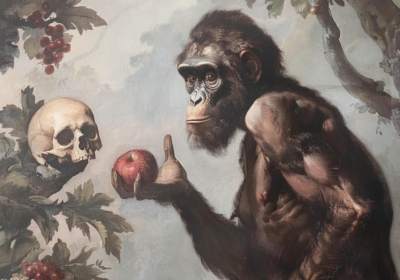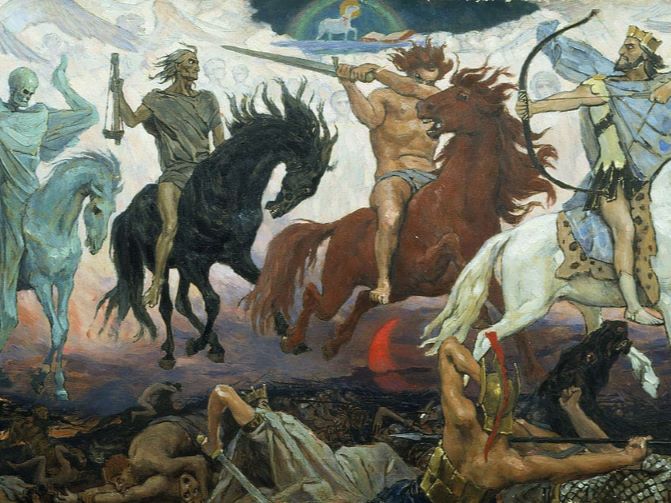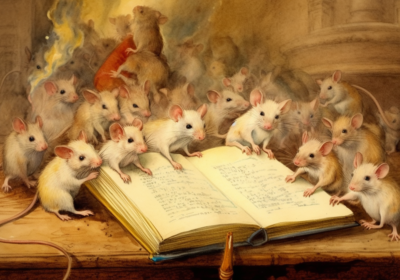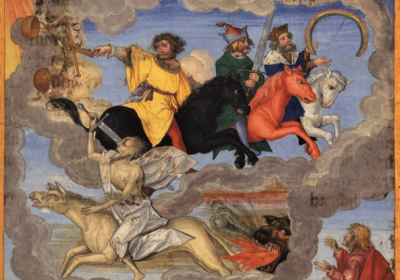Every so often, things fall apart.
In the words of those who lived it, here are the vibes and the semantic signatures of the twentieth century’s most devastating social collapses.
From the meaning in their words, wisdom for our future emerges.
Recent major media stories that feel to us like they’re part of a larger narrative campaign.
Recent major media stories that feel to us like they’re part of a larger narrative campaign.
This is an exclusive subscriber-only preview of the first six chapters of Rusty Guinn’s upcoming book Outsourcing Consciousness: How Social Networks are Making Us Lose Our Minds. The book explores how evolution, polarization, and technology are slowly transforming humanity into a hive mind - and what we can and can't do about it.
The Long Now is everything we pull into the present from our future selves and our children. We are told that the economic stimulus and the political fear of the Long Now are costless, when in fact they cost us … everything.
Tick-tock.
Men of God in the City of Man is a nine part series about a Narrative virus that infected the charismatic and Pentecostal churches in the United States. It isn't a story about Christian Nationalism. It isn't a story about January 6th. It isn't a story about why people voted for Trump. It is a story about a story. It is a story about the language that created a self-sustaining movement defined by its unwavering belief in a fundamentally corrupt electoral system.
Men of God in the City of Man
Amid the Widening Gyre of politics and the black hole of financial markets, the only anchor is us, together, walking with Clear Eyes and Full Hearts. Experience Ben's original 4-part series.
Outsourcing Consciousness
The Long Now
Men of God in a City of Man
Things Fall Apart
Recent Notes
Shikaka!
In this news cycle, if an issue sticks around for more than a week, you can be sure that it isn’t by accident. It’s because it represents an abstraction, and because those in influence like how that abstraction changes our behavior.
You Are Here
The greatest risk to your portfolio is a change in the zeitgeist. A change from deflation to inflation. A change from cooperative international games to competitive games. A change from capital markets to political utilities.
I think it’s all happening.
The Alembic
Distillation isn’t a process of concentration. It isn’t a natural progression. It is a violent changing of the underlying thing. So, too, is portfolio construction.
Run, Run, Pass
It’s easy to convince ourselves that the opposite of being narrative-driven is being data-driven. This is a lie. The most common way that narrative influences our behavior is through unadorned data, presented with the unstated implication that it is necessary, sufficient and explanatory.
We Are All Epsilon Theorists Now
I found this photo from Friday’s presser, when Jay Powell was asked to describe how much credibility he has now.
JK. But also, LOL.
In the News | Week of 1.7.2019
Three reporting companies this week. The most-connected articles include an odd weed obsession among media and analysts, and a…rather unfortunate Delta experience.
A Game of Them
When it comes to politics and social media, making up straw men about our enemies to make them look ridiculous seems like good entertainment. But beware embracing amusing-but-wrong cartoons in zero sum games.
Epsilon Theory Discovery Map
Introducing the Epsilon Theory Discovery Map – a novel way to navigate the Epsilon Theory archives, not based on chronology or author, but based on connectivity, similarity and consistency in the underlying narratives.
Let Us Now Praise Famous Men
We are living in a Golden Age of corporate management competence, driven by the adoption of process technologies and minimax regret strategies. That’s not going to stop in 2019, and it has major implications for your portfolio strategy.
Audacity
Some resolution season advice for young professionals who would become successful professional investors without becoming charlatans – a task easier said than done.
Looking for Laffer-Likes
Complex systems and uncertainty influence us to look for something – anything – to hang our hat on. The problem? We’re prone to hang our hats on extrapolations of the rare facts we can find, many of which have no explanatory power at the margin, where markets live and breathe.
In the News | Week of 12.31.2018
Summary on most narrative-linked news of one announcing US company and this week’s December non-farm payrolls and unemployment updates.
Rock, Paper, Scissors
We’ve been doing it wrong with AI for too long. Time to do it right.
We can’t SOLVE for the future of complex social systems like markets or politics with algorithms. But we can CALCULATE the future of these systems with AI.
Lord Make Me Chaste … But Not Yet
The problem for markets today is not the Fed.
The problem for markets today is the guy in the White House and his game of Chicken with the world.
In the News | Week of 12.24.2018
With limited markets-related events next week, we instead highlight some of the most representative (and unique) reviews of 2018.
The Prediction Polka
We would usually tell you that all information is information. There is no good or bad. No right or wrong. But some things aren’t even information. Knowing what you can ignore is worthwhile.
Twilight of the (Consumer) Goods?
With increasing attention to trade and tariff narratives and falling attention to inflation and growth narratives in the U.S., we believe that investors may benefit from focus on sectors on which the latter narratives have weighed heavily in 2018. Of particular interest? Brand-oriented consumer stocks, especially many staples that have been left for dead.
The Road to Tannu Tuva, Pt. 1
When our processes of inquiry lack challenge, doubt and obsession with falsifying our best ideas, the result is inevitable. Our conclusions cease to be science and become something else entirely. That something else is a thing sensitive to narrative, vulnerable to priors and bias. That something else is scientism.
We Had The Same Crazy Idea
It is a frustrating truth that good – even great – investors rarely know exactly what it is that makes them good. And so the inevitable guilty pleasure of investors – building portfolios from the best ideas of their various managers and advisors – is almost always doomed to fail from the beginning.
Sin Boldly
There is very little that an investor can do to more easily become a better investor than to better understand his behavior. But the investor who relies on awareness, discipline and self-control remains susceptible to a world that seeks to influence his standard for correct behavior.














































